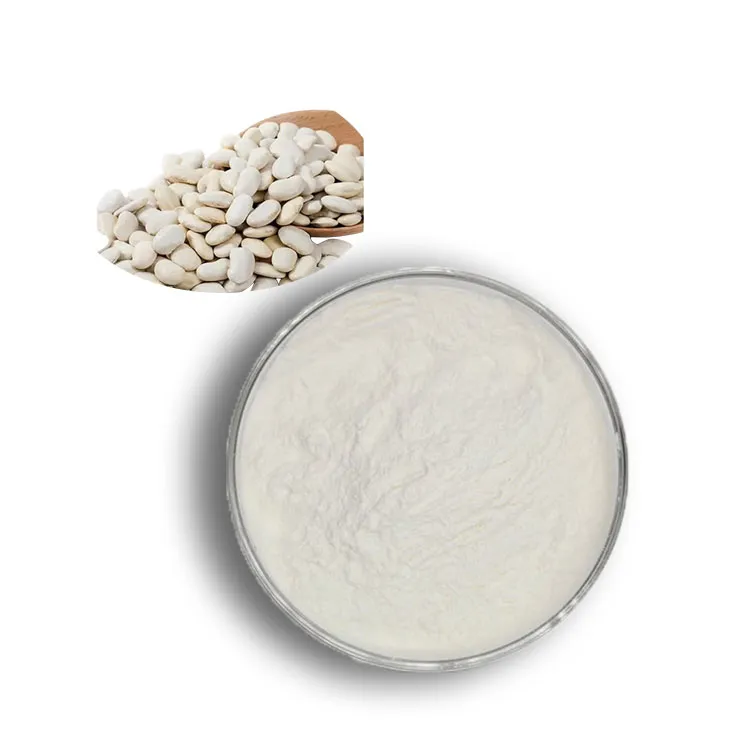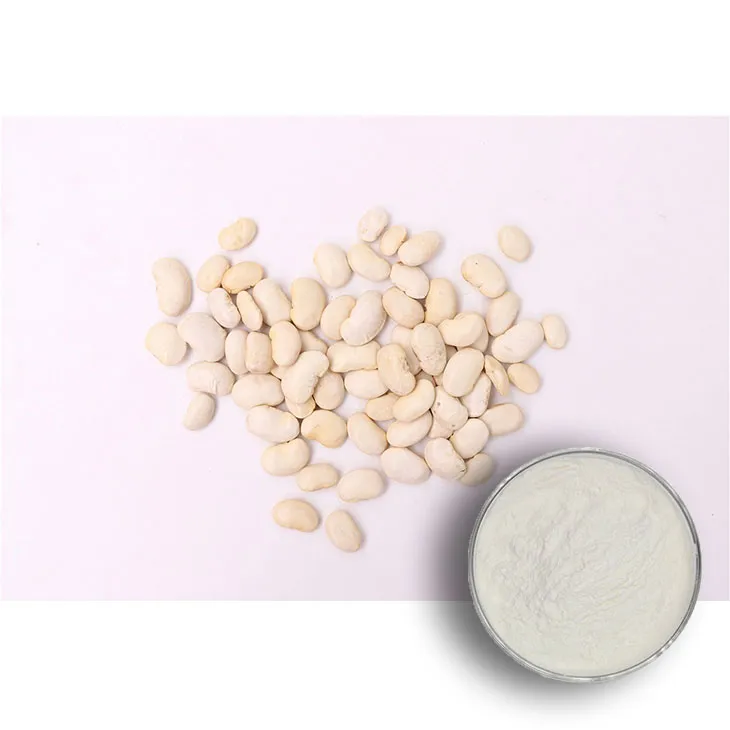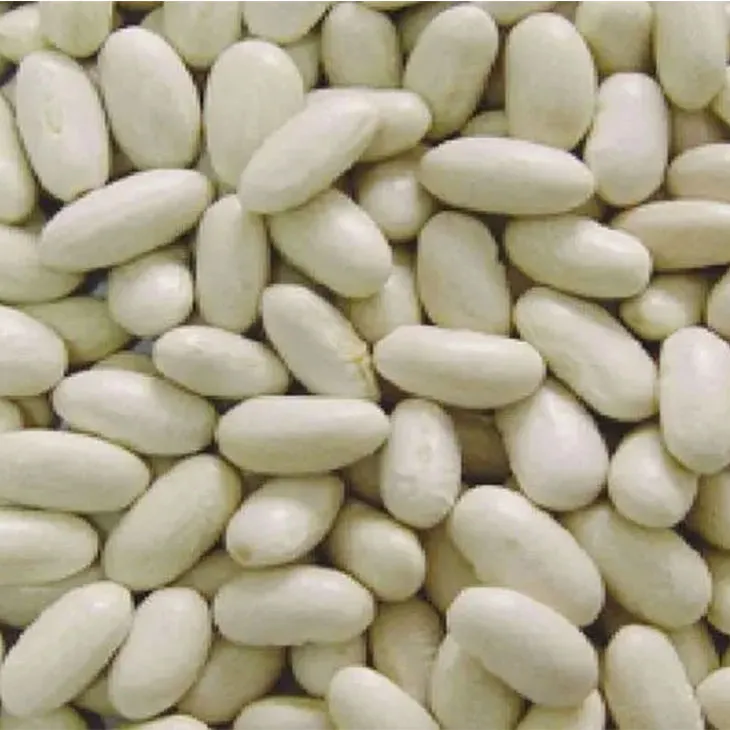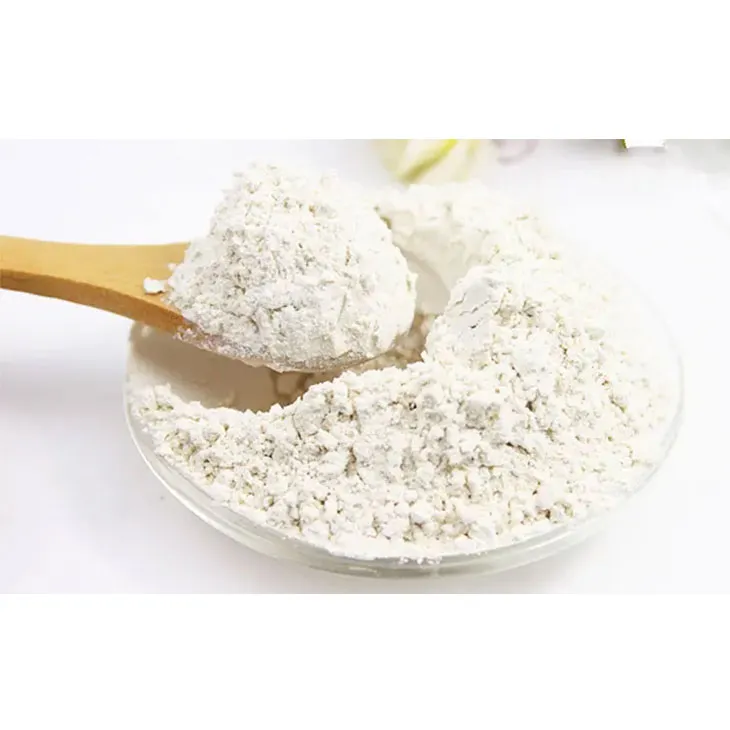- 0086-571-85302990
- sales@greenskybio.com
Active components in kidney bean extracts.
2024-11-29

Introduction
Kidney Bean Extract is a natural substance that has attracted significant attention due to its rich composition of active components. These components play diverse roles in various physiological processes, making Kidney Bean Extract a subject of great interest in fields such as health, nutrition, and medicine.

Phaseolamin: A Key Component for Weight Management
Phaseolamin is one of the main active components in Kidney Bean Extract. It has been the focus of numerous studies, particularly for its potential role in weight management.
Mechanism of Action on Carbohydrate Absorption
Phaseolamin can inhibit the activity of alpha - amylase. This enzyme is crucial as it is responsible for breaking down starch into glucose. By inhibiting this enzyme, phaseolamin reduces the rate at which starch is digested and subsequently, the absorption of carbohydrates. This mechanism is significant as it can potentially help in controlling blood sugar levels and managing body weight. For example, in a diet rich in carbohydrates, the presence of phaseolamin can prevent a sudden spike in blood glucose levels that often leads to increased fat storage.

Lectin: Immunomodulatory Effects
Lectin is another important component present in kidney bean extract. Lectins in kidney beans have demonstrated certain immunomodulatory effects.
Interaction with Immune Cells
Lectins are capable of interacting with the immune cells. This interaction can potentially enhance the body's immune response. For instance, they may stimulate the production of cytokines, which are small proteins that play a crucial role in cell - to - cell communication in the immune system. By modulating the immune response, lectins may contribute to the body's defense against infections and diseases. However, it should be noted that in some cases, excessive lectin intake may cause adverse effects, so proper consumption levels need to be considered.

Flavonoids: Antioxidant Properties
The kidney bean extract also contains flavonoids. These compounds are well - known for their antioxidant properties.
Free Radical Scavenging
Flavonoids can scavenge free radicals in the body. Free radicals are unstable molecules that are formed during normal metabolic processes as well as due to environmental factors such as pollution and radiation. These free radicals can cause oxidative damage to cells, which is associated with various chronic diseases. By scavenging free radicals, flavonoids protect cells from this damage. For example, they can prevent lipid peroxidation in cell membranes, which is a key process in the development of cardiovascular diseases.
Reduction of Chronic Disease Risk
Due to their antioxidant effects, flavonoids in kidney bean extract can reduce the risk of various chronic diseases. One such example is cardiovascular diseases. By protecting the cells in the blood vessels from oxidative damage, flavonoids can help maintain the integrity of the vascular system, reducing the risk of atherosclerosis and heart attacks. Another example is cancer. Oxidative stress is known to play a role in the development of cancer, and flavonoids' antioxidant activity may help in preventing the initiation and progression of cancer cells.

Other Potential Active Components
In addition to phaseolamin, lectin, and flavonoids, kidney bean extract may contain other active components that are yet to be fully explored.
- There may be certain peptides with bioactive properties. These peptides could potentially have effects on blood pressure regulation or muscle function.
- Some phenolic compounds other than flavonoids might also be present, which could contribute to the overall antioxidant capacity of the extract.
- Minerals and vitamins in trace amounts could also play a role in the overall functionality of the kidney bean extract. For example, potassium in kidney beans can be beneficial for maintaining proper heart function.
Applications of Kidney Bean Extract
The presence of these active components in kidney bean extract has led to various potential applications.
Health Supplements
Kidney bean extract can be used in the formulation of health supplements. For individuals aiming to manage their weight, a supplement containing phaseolamin could be a useful addition to their diet plan. Similarly, those looking to boost their immune system might consider a supplement with lectin - rich kidney bean extract. Flavonoid - containing supplements could be beneficial for those concerned about reducing their risk of chronic diseases.
Functional Foods
Kidney bean extract can also be incorporated into functional foods. For example, it could be added to energy bars or breakfast cereals. This would not only enhance the nutritional value of these foods but also provide the benefits associated with the active components. Consumers could then obtain the advantages of weight management, immune modulation, and antioxidant protection through their regular diet.
Conclusion
In conclusion, kidney bean extract is rich in a variety of active components, including phaseolamin, lectin, and flavonoids. Each of these components has distinct physiological effects, such as weight management, immunomodulation, and antioxidant activity. The potential applications of kidney bean extract in health supplements and functional foods are vast. However, further research is still needed to fully understand the complex interactions between these components and their long - term effects on human health. With continued study, kidney bean extract may prove to be an even more valuable natural resource in promoting health and preventing diseases.
FAQ:
What is the main active component in kidney bean extract for weight management?
The main active component in kidney bean extract for weight management is phaseolamin. It can inhibit the activity of alpha - amylase, which is an enzyme that breaks down starch into glucose, thus reducing the absorption of carbohydrates.
How do lectins in kidney bean extract affect the immune system?
Lectins in kidney bean extract have shown certain immunomodulatory effects. They are able to interact with the immune cells and potentially enhance the body's immune response.
What are the functions of flavonoids in kidney bean extract?
Flavonoids in kidney bean extract possess antioxidant properties. They can scavenge free radicals in the body, protecting cells from oxidative damage and reducing the risk of various chronic diseases such as cardiovascular diseases and cancer.
Are there any other active components in kidney bean extract?
Besides phaseolamin, lectin and flavonoids, there may be other active components in kidney bean extract. However, phaseolamin, lectin and flavonoids are the main ones that have been well - studied so far.
How can kidney bean extract be used in a healthy way?
Before using kidney bean extract, it is important to consult a healthcare professional. It can be used as a dietary supplement, but should be taken in appropriate amounts. Also, proper processing of kidney beans is necessary to avoid potential toxicity, as raw kidney beans may contain harmful substances.
Related literature
- The Bioactive Components of Kidney Bean Extract and Their Health Benefits"
- "Phaseolamin in Kidney Bean Extract: A Review of Its Role in Weight Loss"
- "Immunomodulatory Effects of Lectins from Kidney Bean Extract"
- "Flavonoids in Kidney Beans: Antioxidant Properties and Disease Prevention"
- ▶ Hesperidin
- ▶ citrus bioflavonoids
- ▶ plant extract
- ▶ lycopene
- ▶ Diosmin
- ▶ Grape seed extract
- ▶ Sea buckthorn Juice Powder
- ▶ Beetroot powder
- ▶ Hops Extract
- ▶ Artichoke Extract
- ▶ Reishi mushroom extract
- ▶ Astaxanthin
- ▶ Green Tea Extract
- ▶ Curcumin Extract
- ▶ Horse Chestnut Extract
- ▶ Other Problems
- ▶ Boswellia Serrata Extract
- ▶ Resveratrol Extract
- ▶ Marigold Extract
- ▶ Grape Leaf Extract
- ▶ blog3
- ▶ blog4
-
The Most Highly - Praised Lavender Extract.
2024-11-29
-
Organic Goldenseal Extract Powder Suppliers.
2024-11-29
-
Standard - process pine bark extract powder.
2024-11-29
-
Nature's Bounty Almond Powder
2024-11-29
-
Organic Taurine Powder Suppliers.
2024-11-29
-
Bulk purchase of black pepper extract.
2024-11-29
-
Withania Somnifera Extract
2024-11-29
-
Boswellia Serrata Extract
2024-11-29
-
Bilberry Extract
2024-11-29
-
Pomegranate Extract
2024-11-29
-
Cranberry Extract
2024-11-29
-
Almond Extract Powder
2024-11-29
-
Dan Shen Root Extract/Salvia Root Extract
2024-11-29
-
Giant Knotweed Extract
2024-11-29
-
Green coffee bean Extract
2024-11-29
-
Bitter Melon Extract
2024-11-29





















